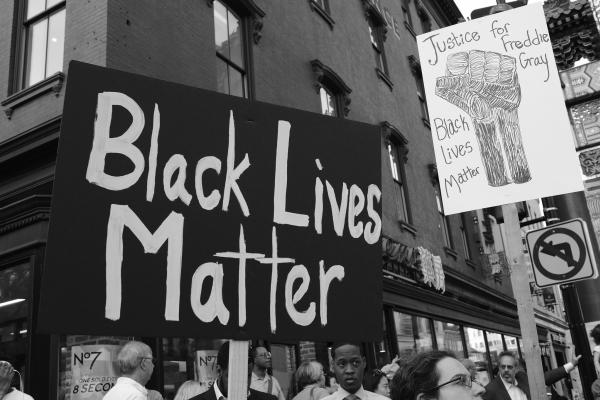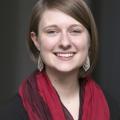“We have heard the cries of the people and we as faith leaders are commanded to respond,” Rev. Dr. Alvin Hathaway, Sr. declared to a packed Basilica of the National Shrine of the Assumption of the Blessed Virgin Mary in Baltimore, Md., April 25.
One year ago, Baltimore — and the whole nation — heard the cries of forgotten neighborhoods that had suffered for too long. After the death of Freddie Gray on April 19, 2015, protests against police brutality shocked the city. To mark the anniversary of the ‘Baltimore Uprising,’ a diverse group of faith leaders who have been active in rebuilding communities in Baltimore called the city together in prayer.
“[After the protests, we] had begun to ask what religious and faith communities could do, by pooling assets and resources,” said Rev. Dr. John Deckenback with the Central Atlantic Conference of the United Church of Christ told me. As a result, Baltimore Archbishop William E. Lori convened the group to come up with a plan for action.
In the last year, the group has met with civic leaders, including four mayoral candidates, police commissioner Kevin Davis, and the governor’s Justice Reinvestment Coordinating Council, the council tasked with crafting a plan to reduce the prison population in Baltimore. Several leaders, including Archbishop Lori, went to West Baltimore following the protests to help clean up and lead services. Imam Earl El-Amin of the Muslim Community Cultural Center of Baltimore said several members had developed a relationship with a seniors’ building during the uprising, sharing medicines and food. Rev. Deckenback’s church has been accepting donations over the last year for areas impacted by protests.
And just last month, the group traveled to the Vatican to pray with Pope Francis for the healing of the city.
Now, a year after the uprisings, the group says it’s time to turn “from hope to wholeness,” beginning with prayer.
“It’s like being at the dinner table — the first thing you do is you say a prayer and then you eat,” Imam El-Amin said.
“Prayer is the preparatory stage for the practical application of the work it is necessary for us to do.”
Prayer not only prepares communities for their work in the world — it also unites them in a common vision and helps them communally imagine the world as it should be.
To Rev. Deckenback, prayer is “stepping back, pausing together, united, and saying, ‘Dear God, there’s got to be a better way.’”
Bishop Herz-Lane, of the Evangelical Lutheran Church Delaware-Maryland Synod, agreed.
Prayer “brings us together and makes us pay attention to one another,” he said.
Participants in the April 25 prayer service spoke to the importance of such an opportunity to unite as a community.
“The more we have opportunities like this one where we can come together to participate, the more we can learn to help one another,” said Olivia Miller, a member of the Church of Jesus Christ of Latter Day Saints.
Ross Albee, another participant in the service and a member of St. Matthew’s Catholic Church, agreed, saying he hopes prayer will “bring us to a point where we’re all working toward the same kind of goals.”
Rabbi Dr. Steven Fink of Temple Oheb Shalom urged that while prayer is important for its unifying vision, it must not stop at vision.
“In Hebrew, the word for prayer literally means to judge oneself, so by praying we are judging ourselves against God’s standards for us,” he said.
In other words, prayer is a means of measuring our actions against our common vision for the world.
United in prayer by a common hope for healing in Baltimore, the question still remains as to how the city can continue to measure itself against that hope and take action to move toward wholeness. The answer may lie somewhere in the intercessory prayers that were offered during the service: for communities of worship, those who work in public safety, educational and health institutions, social service agencies, young people, and civic leaders.
These prayers were not only offered for all of these entities; they were offered by them — Baltimore city’s State’s Attorney Marilyn Mosby, Executive Director of Catholic Charities William McCarthy, Jr., and Governor’s Office of Community Initiatives representative Jennifer Gray offered prayers alongside the faith leaders.
On the eve of Baltimore’s primary elections, the offering of prayers was an especially poignant reflection of the desire for a whole Baltimore.
In a stirring charge, Dr. Sheridan Todd Yeary of Douglas Memorial Community Church urged, “Let us be dissatisfied!”
Only through dissatisfaction with the way things are, only when there is unity and investment in all segments of Baltimore, will the city be able to move from hope to wholeness.
Got something to say about what you're reading? We value your feedback!

